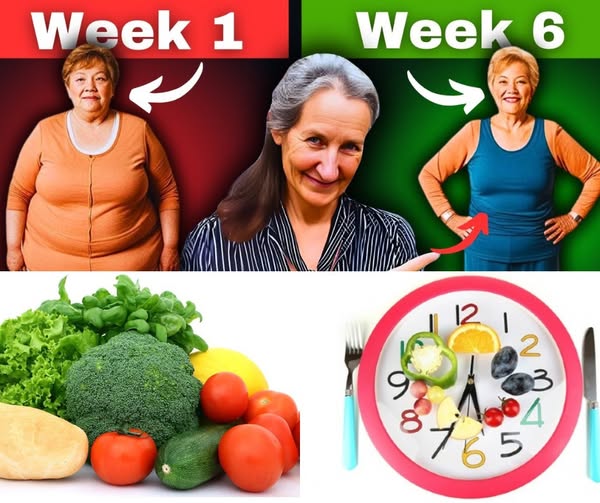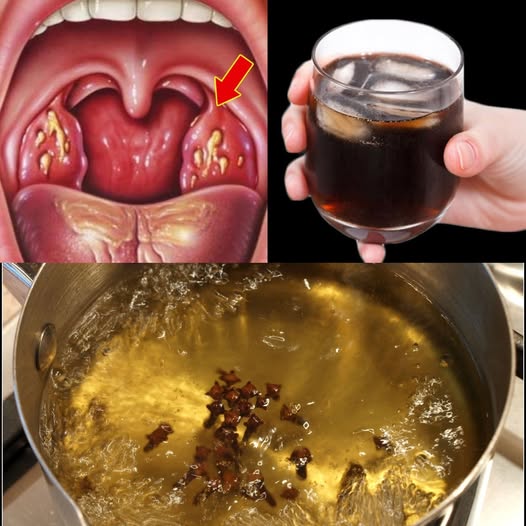Introduction: Why Weight Loss Feels Impossible for So Many

Are you eating healthy, exercising consistently, yet the scale refuses to budge?
You’re not alone. Millions worldwide face stubborn weight gain that defies conventional wisdom.
We’ve been taught to fear fat, but what if the real enemy is lurking elsewhere?
👉 In this article, you’ll discover what’s truly sabotaging your weight loss goals, why your diet may be making things worse, and—most importantly—proven strategies to fix it.
We’ll tackle FAQs, bust common myths, share alarming statistics, and give you an actionable plan to reclaim your health.
Ready to uncover the truth? Let’s dive in.
Section 1: The Surprising Truth — It’s Not Fat That’s Making You Fat
Headline Fact: Research shows that sugar consumption has tripled in the last 50 years.
Contrary to popular belief, dietary fat isn’t the main culprit behind weight gain. The real enemy? Hidden sugars and refined carbs that spike insulin levels and wreak havoc on your metabolism.
✅ Harvard researchers found that people on high-sugar diets are 54% more likely to be overweight.
✅ The World Health Organization links excessive sugar to the obesity epidemic, especially among children.
Why?
Because sugar and refined carbs:
- Trigger insulin spikes, locking fat into cells.
- Cause energy crashes that lead to overeating.
- Fuel chronic inflammation, making weight loss harder.
🧨 It’s time to stop fearing healthy fats and start fighting sugar.
Section 2: Why Calories In vs. Calories Out Is a Flawed Model
Most weight-loss plans preach calorie restriction. But here’s the hard truth:
Not all calories are created equal.
100 calories of broccoli ≠ 100 calories of soda.
- Broccoli provides fiber, micronutrients, and minimal glucose impact.
- Soda sends blood sugar soaring, driving fat storage.
💥 Key Point: The quality of your calories matters more than the quantity.
Your body is a complex metabolic machine, not a basic calculator. Ignoring this is why traditional diets often fail.
Section 3: The Hidden Hormonal Saboteur — Insulin
Insulin isn’t just for diabetics. It’s the master fat-storage hormone.
When insulin is high:
- Fat cells lock in fat.
- Your body can’t burn stored fat.
- Cravings intensify.
Stat to Know: According to the CDC, 88 million American adults have prediabetes, often undiagnosed.
✅ Insulin resistance = stubborn belly fat.
✅ High-carb diets fuel insulin resistance.
Action Step: Lower your insulin through diet and lifestyle changes.
Section 4: Frequently Asked Questions (FAQs)
Q1: Should I stop eating fat?
No. Healthy fats (avocado, nuts, olive oil) help regulate hormones and keep you full. Avoid trans fats and industrial seed oils.
Q2: Are all carbs bad?
Not at all. Whole-food carbs like sweet potatoes and quinoa are nutrient-rich. The danger lies in refined carbs (white bread, sugary drinks).
Q3: Why am I still gaining weight on a low-fat diet?
Low-fat products often have added sugar to improve taste. This raises insulin and promotes fat storage.
Q4: Can stress cause weight gain?
Yes. Stress triggers cortisol, a hormone that promotes belly fat and increases cravings for sugary foods.
Q5: Do I need to count calories?
Focus on food quality, not just quantity. Tracking can help, but hormonal balance is key.
Section 5: The Sugar Trap — Hidden Sources You’re Ignoring
Most people drastically underestimate their sugar intake.
⚠️ Sneaky Sugar Bombs Include:
- “Healthy” granola bars
- Flavored yogurts
- Fruit juices
- Salad dressings
- Low-fat snacks
Stat: The average American consumes 17 teaspoons of added sugar per day—far above the recommended 6-9 teaspoons.
✅ Solution: Read labels. Choose whole, unprocessed foods.
Section 6: The Role of Inflammation in Weight Gain
Chronic inflammation is the silent driver of obesity.
A 2019 study published in Nature Medicine links chronic inflammation to disrupted metabolism and increased fat storage.
What fuels inflammation?
- Sugar and refined carbs
- Processed vegetable oils
- Stress and poor sleep
- Sedentary lifestyle
✅ Anti-Inflammatory Strategies:
- Prioritize omega-3-rich foods (salmon, flaxseed)
- Eat colorful veggies
- Manage stress with meditation or yoga
- Get 7–8 hours of sleep nightly
Section 7: The Gut–Weight Connection
Your gut microbiome plays a pivotal role in weight regulation.
Harvard Health reports that gut bacteria can influence:
- Hunger hormones
- Blood sugar control
- Fat storage
A disrupted microbiome (from antibiotics, junk food) promotes weight gain.
✅ Gut-Healthy Steps:
- Eat fermented foods (yogurt, kimchi)
- Include fiber-rich veggies
- Avoid artificial sweeteners
Section 8: Why Exercise Alone Won’t Fix It
Many believe you can “out-exercise” a bad diet.
Sadly, research proves:
Exercise is critical for health but limited for weight loss if diet is poor.
✅ 80% of weight management is nutrition.
✅ Exercise supports weight loss, reduces stress, and improves insulin sensitivity.
Best combo:
- Strength training (builds metabolism-boosting muscle)
- HIIT (burns fat efficiently)
- Walking (reduces stress hormones)
Section 9: Real-World Example — Jessica’s Story
Jessica, a 42-year-old marketing executive, struggled with 30 pounds of stubborn weight.
❌ Tried calorie-counting apps.
❌ Cut all fats.
❌ Worked out 6 days/week.
No results.
The Breakthrough?
- Cut sugar and refined carbs.
- Embraced healthy fats.
- Managed stress and improved sleep.
- Focused on whole foods.
✅ Lost 28 pounds in 5 months.
✅ Improved energy and mood.
It’s not magic—it’s biology.
Section 10: Proven Strategies to Beat Stubborn Weight Gain
🔑 1. Cut Added Sugar Ruthlessly
- Read labels.
- Avoid sugary drinks.
- Replace desserts with fruit.
🔑 2. Choose Smart Carbs
- Whole grains over white bread.
- Beans and lentils for fiber.
- Sweet potatoes over fries.
🔑 3. Prioritize Protein
- Eggs, chicken, fish, tofu.
- Protein keeps you full and preserves muscle.
🔑 4. Embrace Healthy Fats
- Olive oil, avocado, nuts.
- Fats support hormones and satiety.
🔑 5. Manage Stress
- Try meditation, journaling, walking in nature.
- High cortisol = belly fat.
🔑 6. Improve Sleep Hygiene
- 7–8 hours nightly.
- Sleep deprivation raises hunger hormones.
🔑 7. Move Daily
- Walking after meals reduces blood sugar spikes.
- Include strength and interval training weekly.
🔑 8. Heal Your Gut
- Eat fermented foods.
- Add prebiotic fiber.
- Limit processed junk.
Section 11: Alarming Stats to Remember
📌 Obesity affects over 650 million adults worldwide (WHO).
📌 By 2030, 1 in 2 U.S. adults may be obese (Harvard T.H. Chan School of Public Health).
📌 Processed foods make up over 60% of the modern diet.
This isn’t just about aesthetics—it’s a public health crisis.
Section 12: Why the Conventional Diet Industry Has Failed You
Most commercial diets:
- Demonize fat.
- Encourage unsustainable calorie restriction.
- Ignore hormones.
- Profit from repeat customers.
Reality: Sustainable weight loss requires addressing root causes.
Stop blaming your willpower. Start fixing your biology.
Conclusion: It’s Time to Take Back Control
You’ve been told for decades that fat is the villain.
But the true saboteurs are sugar, refined carbs, chronic stress, poor sleep, and hidden inflammation.
By understanding the real causes of stubborn weight gain, you can finally unlock:
✅ Sustainable fat loss
✅ Balanced hormones
✅ Renewed energy
✅ Long-term health
Act Now:
- Audit your pantry.
- Cut out hidden sugars.
- Embrace real, whole foods.
- Prioritize sleep and stress management.
- Move your body with purpose.
The journey isn’t about deprivation. It’s about empowerment.
Because the truth is:
You can transform your body and health—once you stop fighting the wrong enemy.


